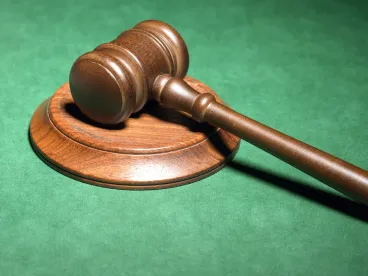On January 13, 2016, the Federal Circuit affirmed the decision of the PTAB in Ethicon Endo-Surgery, Inc. v. Covidien LP, IPR2013-00209, that all of the claims of U.S. Patent 8,317,070 are obvious. While the obviousness analysis in both the PTAB decision and the subsequent appeal were unremarkable, the Federal Circuit’s decision was nevertheless precedential for upholding the constitutionality of a single PTAB panel to render both an institution and final written decision.

Appellant Ethicon argued on appeal that the final written decision in IPR2013-00209 was invalid because the same panel of administrative patent judges rendered the institution decision and the final written decision. In particular, Ethicon argued that allowing the same panel to decide whether to institute an IPR and hear the merits of the case was a violation of due process and barred by statute, and further, that the Director did not have authority to delegate the power to institute IPRs to APJs.
The majority (Circuit Judges Dyk and Taranto) disagreed with Ethicon on all counts, noting that the Supreme Court has never found a system with combined adjudicatory functions to be a violation of due process. Likewise, the Federal Circuit judges were unpersuaded by Ethicon’s insinuation that the APJs on a given panel would be irreparably biased by the allegedly lopsided presentation of pre-institution facts and arguments. The majority analogized the considerations of the Board at the institution phase to a district court judge deciding whether a party was likely to prevail in order to grant a preliminary injunction, noting that the same judge will then proceeding to adjudicate the case on the merits.
Additionally, the court held that Ethicon ignored the presumptive authority to delegate that is associated with administrative statues and that there was nothing in the legislative history or statute that would overcome this presumption. Lastly, the majority held that 35 U.S.C. § 3(b)(3)(B) does not limit the Director to delegating authority only to those parties that she appoints.
Judge Newman, on the other hand, argued in her dissent that PTAB panels are, in fact, barred from deciding whether to institute IPRs. Specifically, Judge Newman calls out the distinction in language between 35 U.S.C. § 314(a), which provides “the Director” with authority to institute IPRs, and 35 U.S.C. §§ 316(c) and 318, which instruct “the Patent Trial and Appeal Board” to conduct IPRs and render final decisions. Judge Newman suggests that this distinction in language evidences an intent to separate the pre-institution and post-institution decision making process.
Judge Newman also took issue with the majority’s analogy comparing institutions to preliminary injunctions because preliminary injunctions have interlocutory mechanisms that allow immediate appeal of the judge’s decision, while an institution before the PTAB is final and unappealable under 35 U.S.C. § 314(d).
Accordingly, a more apt analogy that both the majority and dissent missed would have been to compare IPRs to pre-AIA reexaminations, which IPRs were modeled on, as the latter proceedings were initiated and adjudicated by the same examiner. Regardless, the status quo has been maintained at the PTAB—for the time being.
But the Federal Circuit’s decision in Ethicon may have been the beginning of a larger debate.
Since the AIA was passed in 2011, legislators have been pushing for various reforms; some of which have been pro-patentee while most others are not. One proposal that is particularly noteworthy in view of Ethicon is the STRONG (“Support Technology and Research for Our Nations Growth’) Patents Act (S. 632).
The STRONG Act was introduced in March 2015 by Senators Chris Coons, Dick Durbin, and Mazie Hirono, and this act includes a variety of provisions that would make changes to the application of the civil rules of procedure in patent trials, alter district court analysis of willful and divided infringement, and expand the authority of the Federal Trade Commission, to name a few. But no single adjudicating body would be more transformed by the STRONG Act than the PTAB.
While the STRONG Act contains numerous overhauls for proceedings at the PTAB, the majority’s holding in Ethicon clearly contradicts one—the proposal to prevent PTAB judges participating in institution decisions from also sitting on the panel that hears the IPR on the merits. In the Ethicon, both the majority and the dissent opine at length on what they believe Congress intended with respect to the conduct of IPRs. Thus, this decision perfectly tees up the provision in the STRONG Act related to separating pre- and post-institution processes, and it invites Congress to clarify what it actually intended.
Of course, there are at least five other reform acts currently percolating in Congress, so this single provision in the STRONG Act is not necessarily center stage. But regardless of whether the STRONG Act is ultimately passed or eventually dies, the Federal Circuit’s decision in Ethicon is likely to have an impact on the reform debate on Capitol Hill.




 />i
/>i

